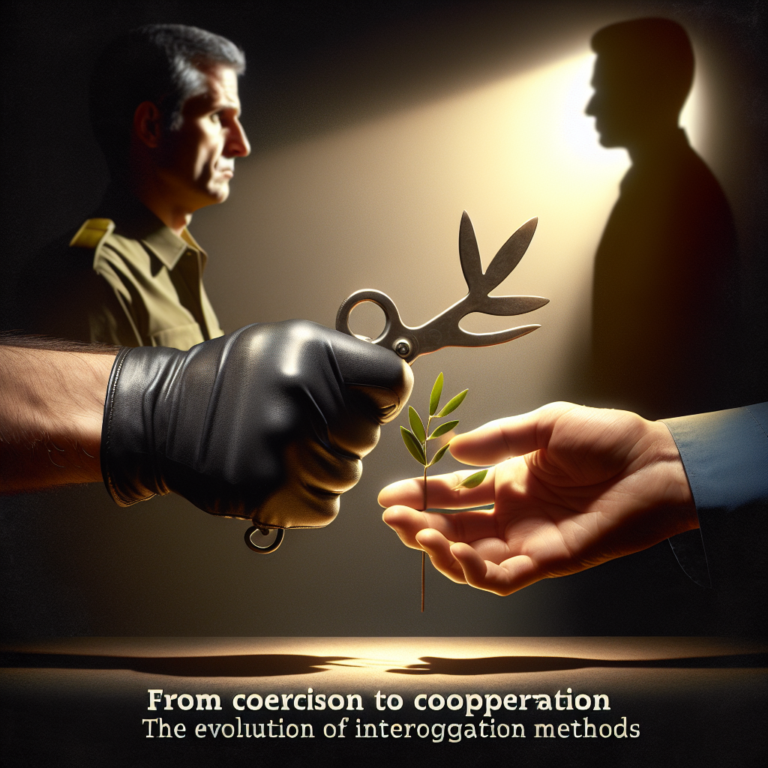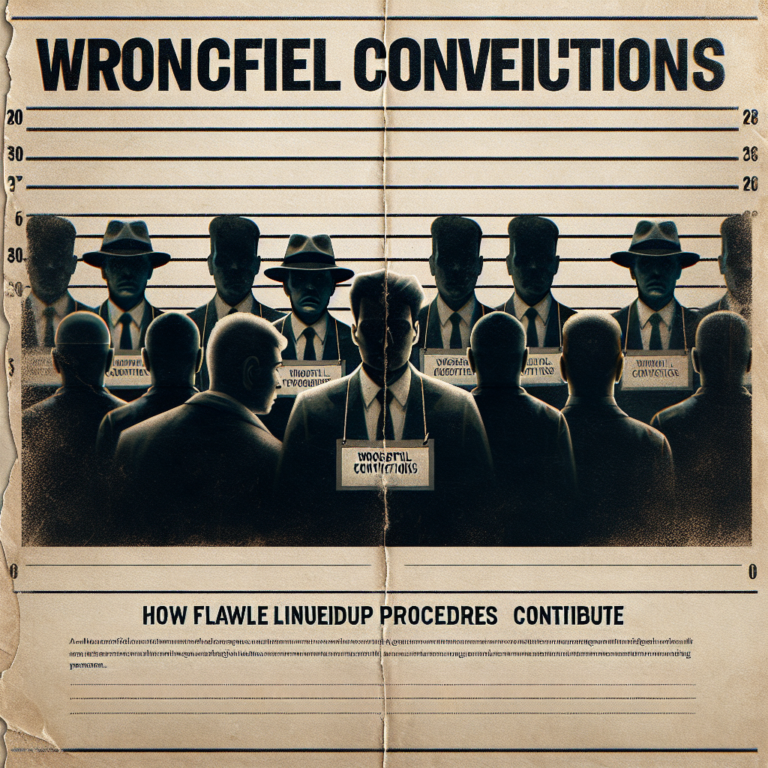
Introduction
In a world where legal rights can make or break a case, understanding Miranda competence has never been more crucial. The landmark Miranda v. Arizona decision in 1966 established a fundamental principle of American law: that individuals in police custody must be informed of their rights before being interrogated. Yet, the implications of these rights stretch far beyond the courtroom. In this comprehensive examination of Understanding Miranda Competence: A Deep Dive into Legal Rights and Responsibilities, we explore not just what these rights entail, but the responsibilities they impose on law enforcement and the judiciary.
By the end of this article, you will have a thorough understanding of Miranda competence, equipped with the knowledge needed to navigate this essential aspect of the legal system. So, let’s dive into the intricate world of Miranda rights and the responsibilities that accompany them!
What Is Miranda Competence?
Defining Miranda Rights
Miranda rights are a set of legal protections that ensure individuals are aware of their rights when taken into custody. These rights include:
- The Right to Remain Silent: Individuals are not obligated to speak to police or answer questions.
- The Right to an Attorney: If individuals cannot afford an attorney, one will be appointed for them.
When law enforcement fails to inform a suspect of these rights, any statements made during interrogation may be deemed inadmissible in court.
The Importance of Competence
Understanding Miranda competence means recognizing an individual’s ability to comprehend their rights and the consequences of waiving them. Competence encompasses both mental and emotional readiness to make informed decisions, which can drastically affect the outcome of a case.
Evolution of Miranda Rights
The early days of law enforcement lacked the formal mechanisms we see today. However, the Miranda ruling transformed the landscape, pushing for accountability among police forces. Subsequent cases, such as Dickerson v. United States (2000), reaffirmed the necessity of these rights.
Case Studies in Miranda Competence
Case Study 1: Miranda v. Arizona (1966)
Relevance: This is the seminal case that introduced Miranda rights.
Analysis: Ernesto Miranda was arrested without being informed of his rights, leading to a confession that was later contested in court. The Supreme Court ruled that his confession was inadmissible, fundamentally changing the way law enforcement operates. This case illustrates the critical importance of clearly communicating rights to individuals in custody.
Case Study 2: Berkemer v. McCarty (1984)
Relevance: This case established the "traffic stop" standard.
Analysis: The Supreme Court decided that Miranda rights must be read even during brief detentions, impacting how police conduct traffic stops. McCarty’s lack of understanding of his rights was pivotal in determining the outcome, highlighting the nuances of competence within various contexts.
Case Study 3: California v. Beheler (1983)
Relevance: An addition to understanding circumstances surrounding custodial interrogation.
Analysis: In this case, the Court found that being "in custody" is not confined to jail or police stations. This case underscores the variable nature of custody and the necessity for clear, consistent communication of rights, emphasizing that individuals must be competent to understand their circumstances.
The Responsibilities of Law Enforcement
Ethical Imperatives
Law enforcement officials hold a significant responsibility to ensure that suspects are informed of their Miranda rights as part of the ethical standard of policing. Failure to do so not only violates an individual’s rights but also undermines public trust.
Training and Implementation
Proper training programs must be implemented to ensure that officers not only read the rights but also confirm understanding. This can include:
- Standardized Scripts: Ensuring all officers use an approved script to prevent omissions.
- Assessment Techniques: Implementing methods to gauge whether the suspect comprehends their rights.
Consequences of Non-Compliance
The consequences of neglecting Miranda rights can lead to crucial evidence being thrown out and, in some cases, wrongful convictions. Understanding Miranda competence encompasses understanding the ripple effects of failing to meet these responsibilities.
The Role of the Judiciary
Upholding Rights
Judges play a key role in ensuring that Miranda rights are respected during trials. If there’s evidence of coercion or misunderstanding, judges have the authority to rule confessions inadmissible.
The “Totality of Circumstances” Test
Courts often apply this test to assess whether an individual comprehended their rights at the time of arrest. This test considers:
- The Emotional State of the Suspect: Was the suspect feeling threatened or scared?
- The Environmental Factors: Was the interrogation setting intimidating?
Judicial Recommendations
Judges often recommend that law enforcement tape record confessions to mitigate issues around misunderstandings, thus enhancing transparency.
Understanding the Impact of Mental Health on Competence
The Intersection of Mental Health and Legal Competence
Mental health can critically influence a person’s ability to comprehend their rights. Those with mental health issues may struggle to understand or remember their rights during high-stress situations.
Protocols for Vulnerable Populations
Law enforcement and legal professionals must adapt their approach for individuals with mental illnesses, including:
- Individual Assessments: Tailoring their approach based on the suspect’s mental capacity.
- Increased Support: Providing access to mental health professionals during interrogations.
Responsibilities of Legal Counsel
The Role of Attorneys
Defense attorneys play an instrumental role in safeguarding Miranda rights. They must ensure their clients understand the implications of waiving these rights.
Educating Clients
Attorneys should:
- Prepare Clients: Educate them about their rights before any police interactions.
- Advocate for Competence Assessments: Request psychological evaluations when appropriate.
Handling Waivers
Understanding Miranda competence also includes guiding clients when they choose to waive these rights, ensuring they do so knowingly and voluntarily.
Best Practices for Law Enforcement
Recommended Procedures
- Recording Interrogations: This provides a record to ensure that rights are communicated effectively.
- Utilizing Layman’s Terms: Rights should be articulated in simple language to ensure comprehension.
- Regular Training Updates: Continually updating police training to incorporate evolving legal standards.
Community Outreach
Community programs aimed at educating citizens about their rights can help demystify the legal process and foster greater trust.
Conclusion
As we conclude our in-depth exploration of Understanding Miranda Competence: A Deep Dive into Legal Rights and Responsibilities, it becomes evident that knowledge of these rights is crucial for both individuals and law enforcement. By prioritizing clarity in communication and respect for legal protocols, we can better protect the rights of all individuals, ensuring justice is served fairly.
In our complex legal landscape, understanding Miranda competence isn’t just a privilege—it’s a responsibility we all share. The more informed we are, the better equipped we become to navigate the intricacies of the justice system.
FAQs
1. What are Miranda rights?
Miranda rights are legal protections that inform individuals of their right to silence and right to an attorney while in police custody.
2. What happens if Miranda rights are not read?
If Miranda rights are not read, any statements made by the suspect during interrogation may be ruled inadmissible in court.
3. How can a person assert their Miranda rights?
A person can assert their rights by explicitly stating they wish to remain silent or request an attorney.
4. Are there exceptions to Miranda rights?
Yes, exceptions exist, such as public safety concerns or voluntary statements made before the rights are read.
5. How do mental health issues affect Miranda competence?
Mental health issues can hinder an individual’s ability to fully understand and appreciate their Miranda rights, necessitating additional considerations by law enforcement and legal professionals.
In our pursuit of justice, let’s remember that understanding and respecting Miranda competence is not just a legal obligation, but a fundamental aspect of what it means to uphold human rights.











